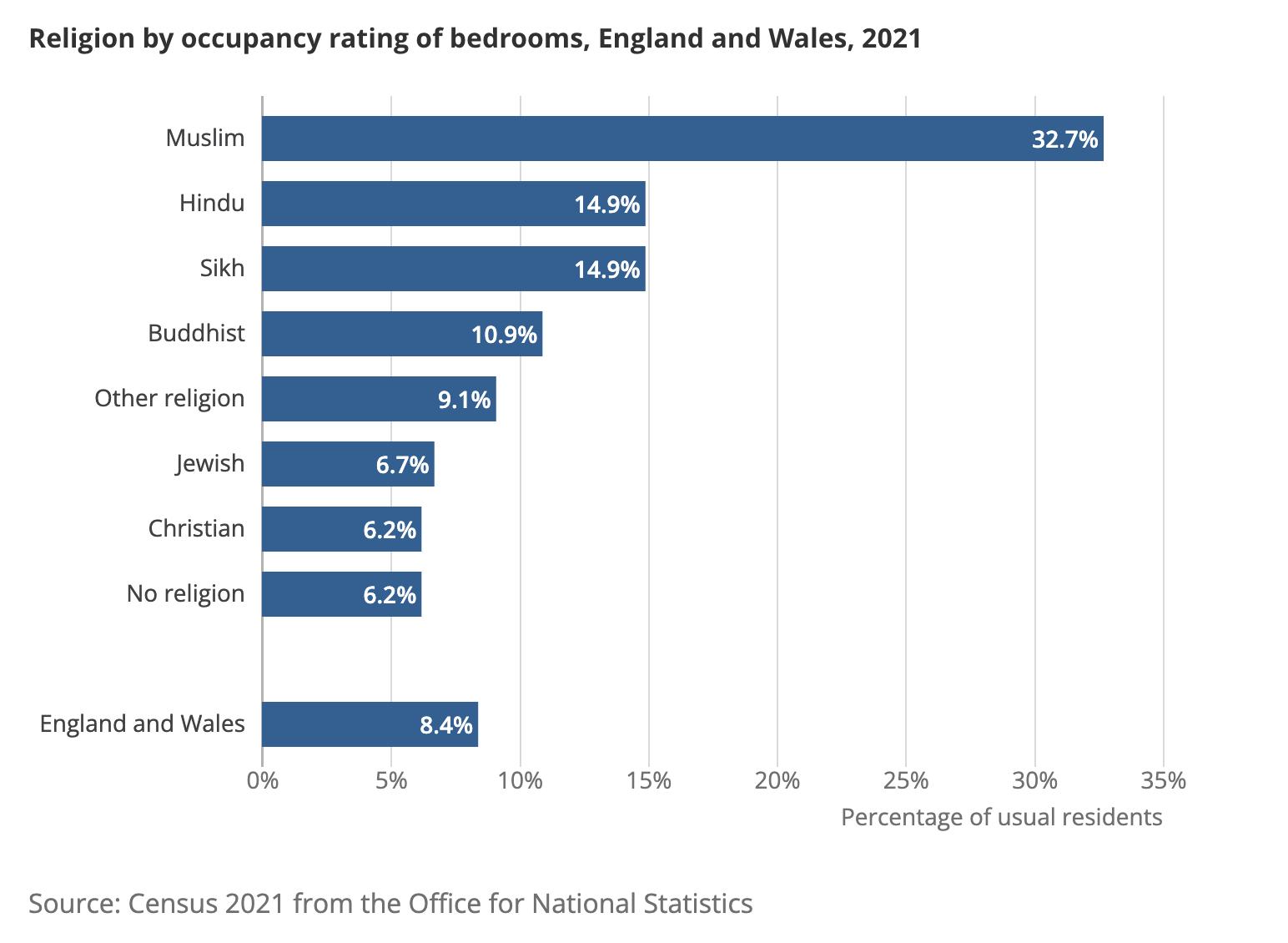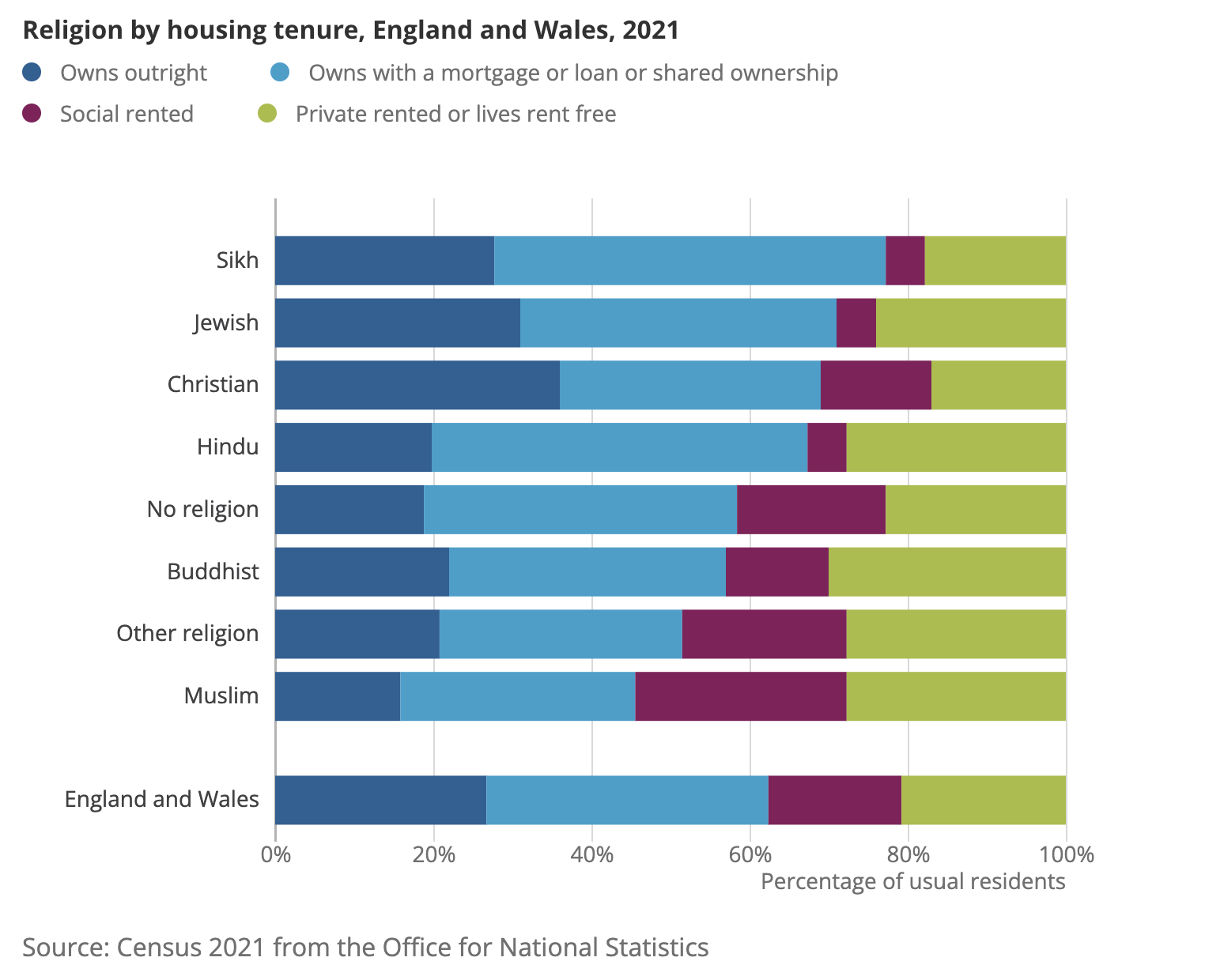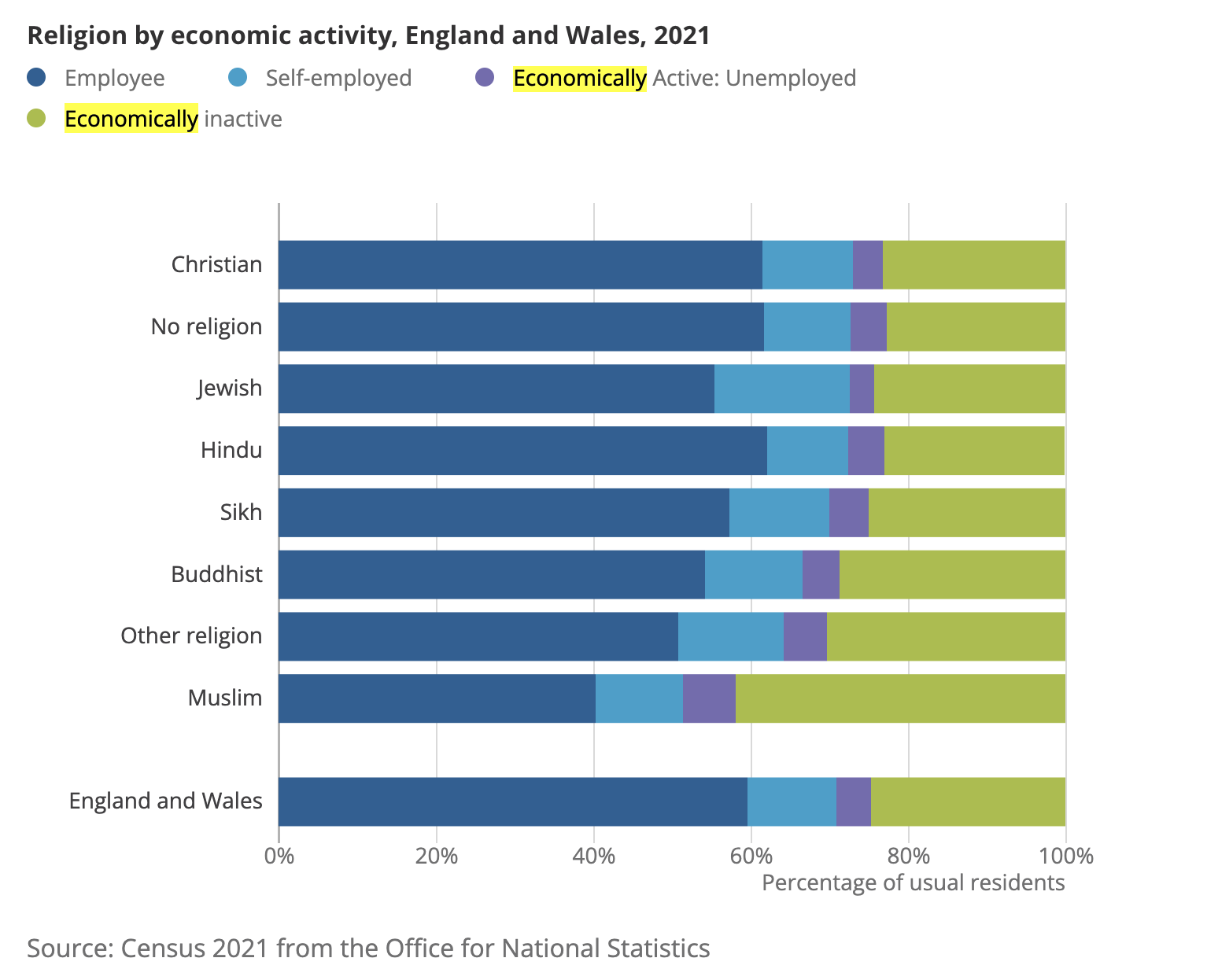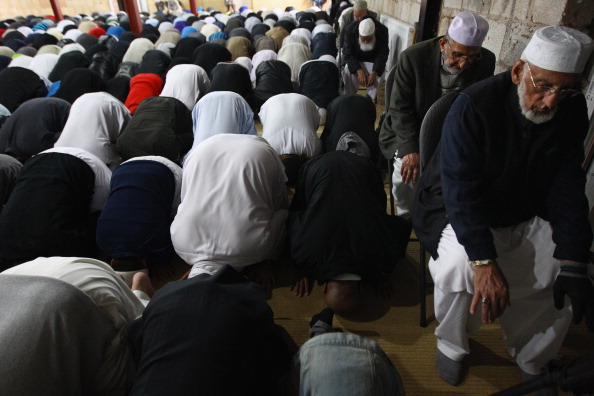Muslims are nearly four times more likely to live in overcrowded homes than the overall population of England and Wales, new Census data showed this week.
The Office of National Statistics released more information from the 2021 census for England and Wales on religion and housing, health, employment, and education.
It said among the 3.9 million people who said they were “Muslim” in 2021, 32.7% lived in overcrowded homes, compared with 8.4% of the overall population.

The data also revealed that Muslims are less likely to own a home than other faith groups.
Less than half of those who identified as “Muslim” in 2021 lived in owner-occupied households (45.6%) compared with 62.8% of the overall population.
In contrast, 77.7% of those who identified as “Sikh” lived in households that owned their home, either outright or through a mortgage or loan.
People who identified as “Christian” were most likely to live in households that owned their home outright (36.0%), 8.9 percentage points higher than the overall population (27.1%).

Muslims also had the highest percentage (26.6%) of people who lived in “social rented” housing, compared with 16.6% of the overall population.
The census took place in England and Wales on March 2021. It comprised questions on various topics such as housing, education, wellbeing, and required respondents to identify their religious affiliation.
Employment data
In 2021, people who identified as “Muslim” had the lowest percentage of people aged 16 to 64 in employment — 51.4% compared with 70.9% of the overall population.
“This resulted from the high percentages of people who were students or looking after home or family in this group,” said the Census release.
It added: “The percentage of people looking after home or family was almost three times higher for people who identified as “Muslim” than the overall population.”

Muslims were among the highest percentage of “economically inactive” people. From those 16.1% were looking after the home or family, and 13.8% were students (compared with 5.8% and 7.3% of the overall population, respectively).
Muslims were also amongst the highest percentage of unpaid carers in the 60 to 64 years age group.
Last year, a study showed that a “Muslim penalty” exists in the employment market, which results in a high unemployment rate among British Muslims. The study rejected previous suggestions that the higher unemployment rate was due to the cultural or religious attitudes of Muslims.
Jesse Ransley from the ONS, said, “It’s important to recognise that age profiles vary among the different religious affiliation groups in England and Wales.
“Those who identified as Christian, for example, tended to be older, and those who identified as Muslim younger.
“But this by no means accounts for all the differences in life outcomes for people of different religious affiliations we see in today’s analysis, with some stark inequalities evident.”


















